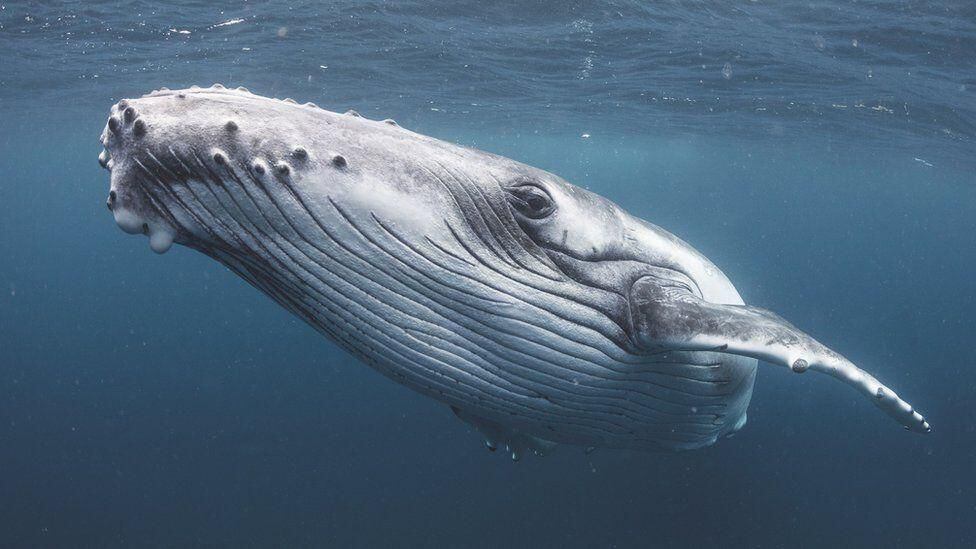Norway became the first country in the world to authorize the controversial practice of deep-sea mining on a commercial scale.
The bill approved on Tuesday will accelerate the search for precious metals, which are highly sought after in the green technology industry.
LOOK: The effects the Red Sea security crisis is having on global trade
Environmental scientists have warned that approval of the project could have devastating effects on marine life.
The plan is limited to Norwegian waters, but an agreement on mining in international waters could be reached this year.
The Norwegian government said it was being cautious and would only start issuing permits when more environmental studies were carried out.
Treasure in the depths
The seabed is home to potato-sized rocks known as nodules and crusts: These contain minerals such as lithium, scandium and cobalt, essential for clean technologies including batteries.
Norway’s proposal will allow mining companies to apply to explore around 280,000 square kilometers, an area larger than the size of the United Kingdom.
Although these minerals are available on land, they are concentrated in a few countries, so their supply may be at risk. For example, the Democratic Republic of Congo has some of the largest cobalt reserves, but faces conflicts in some parts of the country.
Walter Sognnes, co-founder of Norwegian mining company Loke Minerals – which plans to apply for a license – recognized that more needs to be done to understand the depths of the ocean before mining begins.
He told the BBC: “We will have a relatively long period of exploration and mapping activities to fill the gap in knowledge about the environmental impact.”
The critics
Martin Webeler, an ocean activist and researcher at the Foundation for Environmental Justice, said the announcement is “catastrophic” for ocean habitat.
“The Norwegian government has always stressed that it wants to implement the highest environmental standards”he said.
“It is hypocrisy to reject all scientific advice.”
He said mining companies should focus on preventing environmental damage in current operations rather than opening an entirely new industry.
The move puts the country at odds with the EU and the UK, who have called for a temporary ban on the practice due to concerns about potential environmental damage.
Techniques for extracting minerals from the seabed can generate significant noise and light pollution, as well as damage to the habitat of organisms that depend on the nodules, according to the International Union for Conservation of Nature (IUCN).
In November, in an unusual measure, 120 EU lawmakers wrote an open letter calling on the Norwegian parliament to reject the bill due to “the risk of such activity to marine biodiversity and the acceleration of climate change”.
The letter also stated that the impact assessment carried out by Norway had many knowledge gaps.
What the government says

In addition to external criticism, the Norwegian government also faced resistance from its own experts.
The Norwegian Institute for Marine Research (IMR) said that the government made assumptions based on a small area of investigation and applied them to the entire area planned for drilling.
It is estimated that another five to ten years of research will be needed to understand the impacts on the species.
The Norwegian government will not allow companies to start drilling immediately.
They will have to submit proposals, including environmental assessments, for a license which will then be approved on a case-by-case basis by parliament.
Marianne Sivertsen Næss, chair of the Standing Committee on Energy and Environment, examined the original plan and told the BBC that the Norwegian government was taking a “precautionary approach to mining activities”.
He said: “We currently do not have the necessary knowledge to extract minerals from the seabed in the necessary way.. The government’s proposal to open an area of activity allows private actors to explore and acquire knowledge and data from the areas in question. “Opening the areas is not the same thing as approving the extraction of minerals from the seabed.”
Sognnes, of Loke Minerals, added that the government’s plan would attract much-needed private sector investment into research in deep marine environments.
“Developing knowledge in the depths of the ocean is very expensive, it is necessary to operate robots and these are very expensive and unfortunately universities have limited access to these types of tools,” he said.
He estimated that any real extraction would not begin until the early 2030s.
Activists argue that it should invest more in recycling and reusing existing minerals that we extract on land.
The Foundation for Environmental Justice estimates in a report that 16,000 tons of cobalt per year, around 10% of annual production, could be recovered through better collection and recycling of cell phones.
Although Norway’s proposal concerns its national waters, negotiations continue on whether licenses could be issued for international seas.
The International Seabed Authority (ISA), a UN-affiliated body, will meet this year to try to finalize the rules, through a final vote.
Source: Elcomercio
I am Jack Morton and I work in 24 News Recorder. I mostly cover world news and I have also authored 24 news recorder. I find this work highly interesting and it allows me to keep up with current events happening around the world.

:quality(75)/cloudfront-us-east-1.images.arcpublishing.com/elcomercio/AHYHDNUIUBGQBE5X45QN7OY67E.jpg)



:quality(75)/cloudfront-us-east-1.images.arcpublishing.com/elcomercio/IODLIR4M6FEOBBR5WYQKJZEEEY.jpg)
:quality(75)/cloudfront-us-east-1.images.arcpublishing.com/elcomercio/RDAXZZEYYVDSBEPQXPZD5Q3V3Q.jpg)
